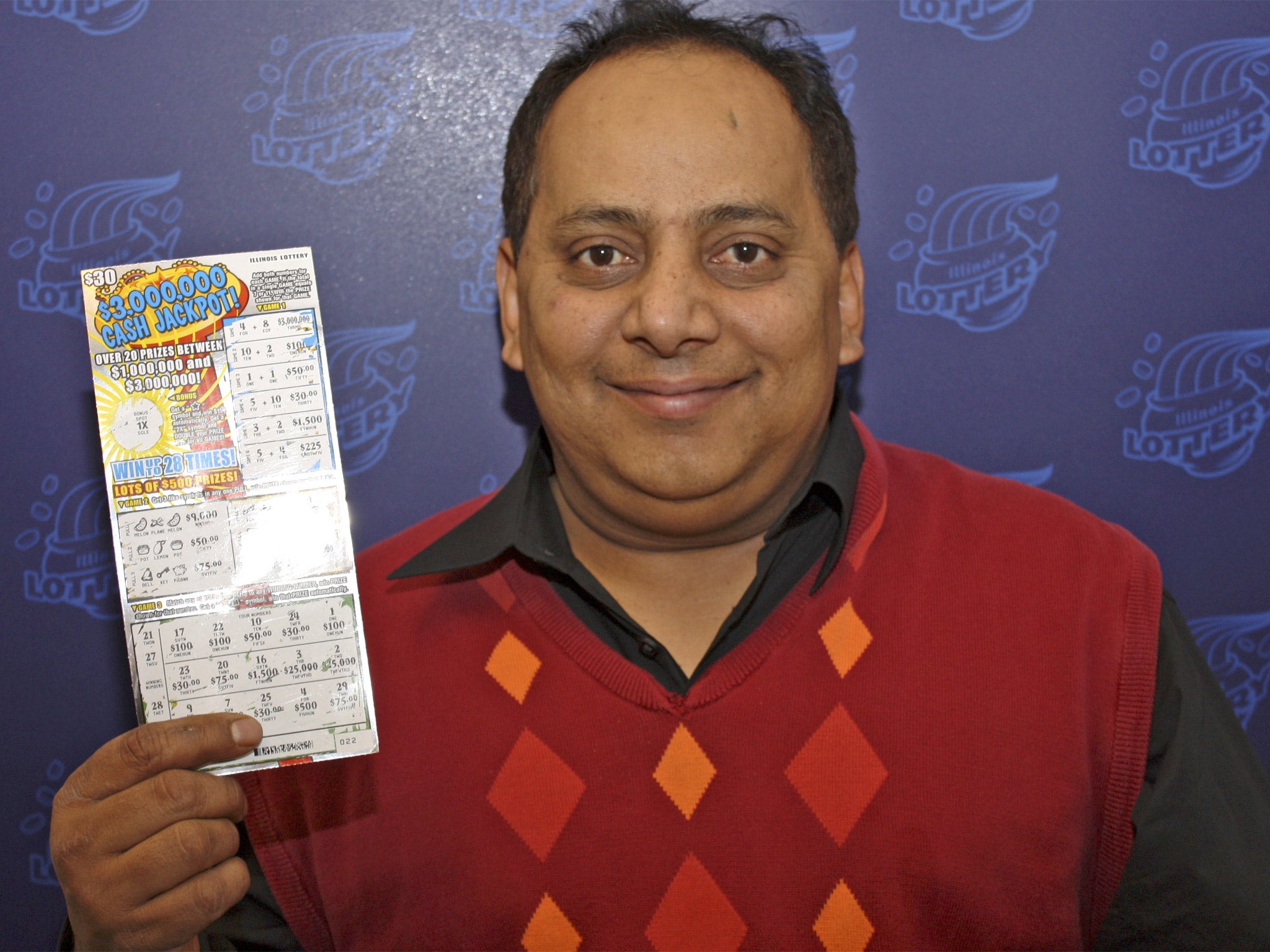Murder investigation launched after US lottery winner dies of suspected cyanide poisoning the day after winning $425,000

Your support helps us to tell the story
From reproductive rights to climate change to Big Tech, The Independent is on the ground when the story is developing. Whether it's investigating the financials of Elon Musk's pro-Trump PAC or producing our latest documentary, 'The A Word', which shines a light on the American women fighting for reproductive rights, we know how important it is to parse out the facts from the messaging.
At such a critical moment in US history, we need reporters on the ground. Your donation allows us to keep sending journalists to speak to both sides of the story.
The Independent is trusted by Americans across the entire political spectrum. And unlike many other quality news outlets, we choose not to lock Americans out of our reporting and analysis with paywalls. We believe quality journalism should be available to everyone, paid for by those who can afford it.
Your support makes all the difference.Urooj Khan thought all his luck had come at once. After all, not only had he just won the lottery, he barely ever played it. But the day after picking up his $425,000 (£265,000) prize Mr Khan died from what appears to have been cyanide poisoning. Police are treating the case as murder.
Mr Khan, a committed Muslim, swore off gambling after returning from the Hajj pilgrimage to Saudi Arabia in 2010. He occasionally broke his pledge, then struck gold on a million-dollar scratchcard purchased from his local convenience store. “Winning the lottery means everything to me,” he said as he accepted a giant cheque on June 26 last year.
A spokesman for the Illinois lottery said that in the event of a lottery winner dying, the cheque passes to his or her estate. On 15 August, a month after he claimed his prize, Mr Khan’s ticket was cashed.
Police documents obtained by the Chicago Tribune showed that on the night he died, Mr Khan had come home from work to his wife and daughter, eaten a meal and gone to bed before screaming in pain. He was pronounced dead at St Francis Hospital in nearby Evanston.
It was mistakenly believed he had died of heart disease, but the case was reopened when a suspicious family member made an anonymous phone call. A full toxicology test showed he had ingested a lethal dose of cyanide.
The Chicago Police Department said its detectives are working closely with the Cook County Medical Examiner’s Office, who claimed Mr Khan’s body is likely to be exhumed for the purposes of the investigation.
“The initial investigation didn’t suggest anything suspicious about his death,” Dr Stephen Cina, a Medical Examiner for Cook County, told ABC News. He said there were no obvious injuries or trauma. He claimed that out of 4,500 autopsies he’d done, only “one, maybe two cases” involved cyanide poisoning. But further tests taken when Mr Khan’s family “wanted us to look a little harder” showed the poison was in fact to blame.
Poisons expert Deborah Blum told the AP that the use of cyanide in attempted killings was increasingly uncommon because the blue splotches it leaves on the victim’s skin makes it easy to detect.
“It has a really strong, bitter taste, so you would know you had swallowed something bad if you had swallowed cyanide,” she said. “But if you had a high enough dose it wouldn’t matter, because... a good lethal dose will take you out in less than five minutes.”
He had planned to invest the money in his dry cleaning business. “By God’s grace, he was a workaholic,” said his widow Shabana Ansari, adding in a statement released by the police that he was “the best husband on the entire planet.”
Join our commenting forum
Join thought-provoking conversations, follow other Independent readers and see their replies
Comments